IBM Cloud - Akamai Error
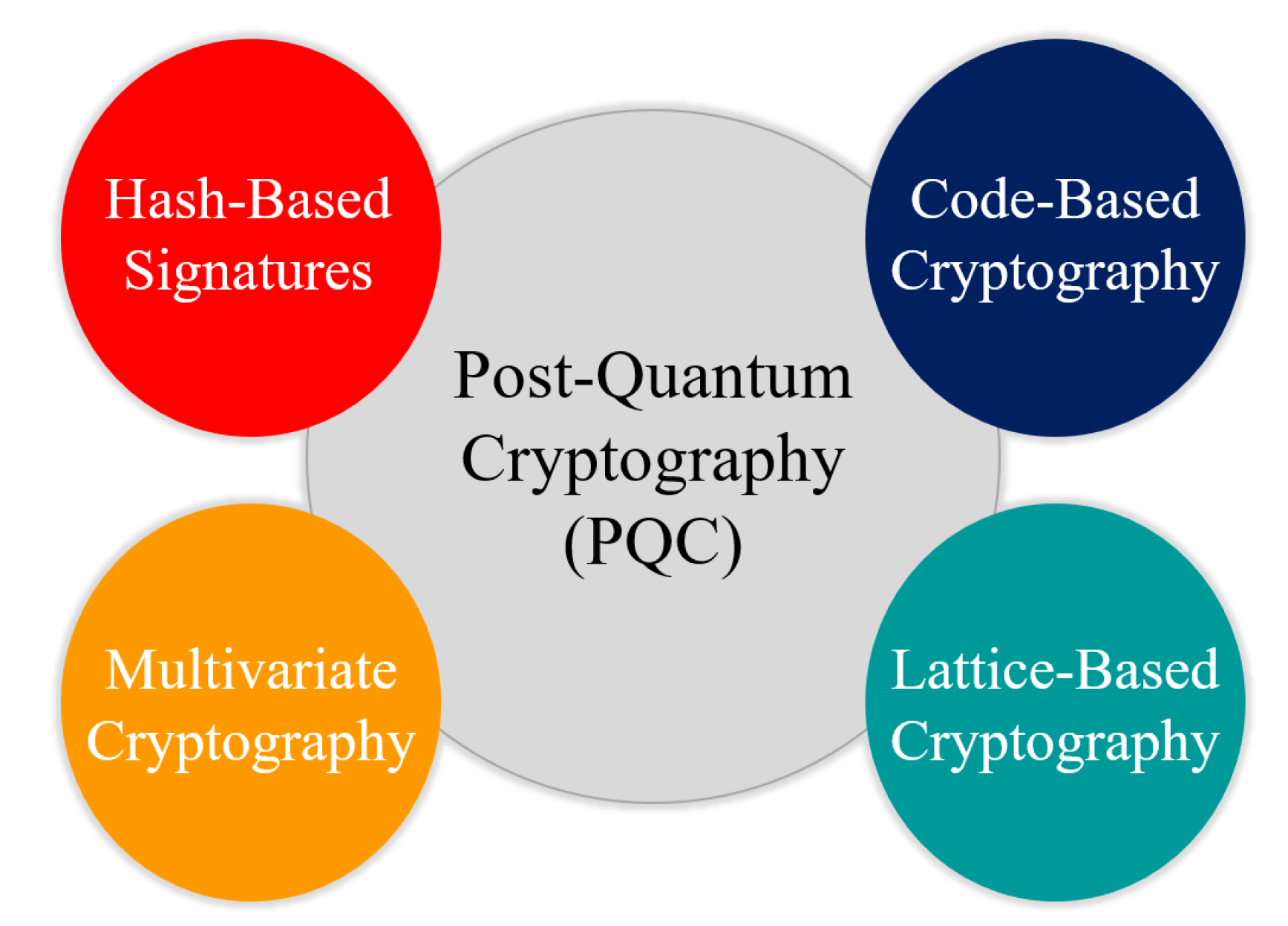
Post-quantum cryptography refers to cryptographic schemes that are assumed to be unbreakable even with the help of a quantum computer.
![11 notable post-quantum cryptography initiatives launched in | CSO Online [] Post-Quantum Cryptography Algorithms Standardization and Performance Analysis](https://cryptolive.fun/pics/4b6d83e8952b4b1965a789d8016f3be3.png) ❻
❻The important classes of post-quantum cryptographic systems are hash-based, code based, lattice-based, multivariate quadratic equations and secret key.
The core strength of the RSA algorithm is based on prime factorization as a method of one-way encryption. The sender uses an encryption key which is generated. The four algorithms are CRYSTALS-Kyber, for general encryption, and three schemes for digital encryption: CRYSTALS-Dilithium, FALCON, and SPHINCS+.
Navigation and service
Over the. Quantum-safe (sometimes also called “post-quantum”) cryptography is the design and implementation of protocols that are believed to be secure against the. Post-Quantum Cryptography (PQC), also known as Quantum Safe Cryptography (QSC), refers to cryptographic algorithms designed to withstand.
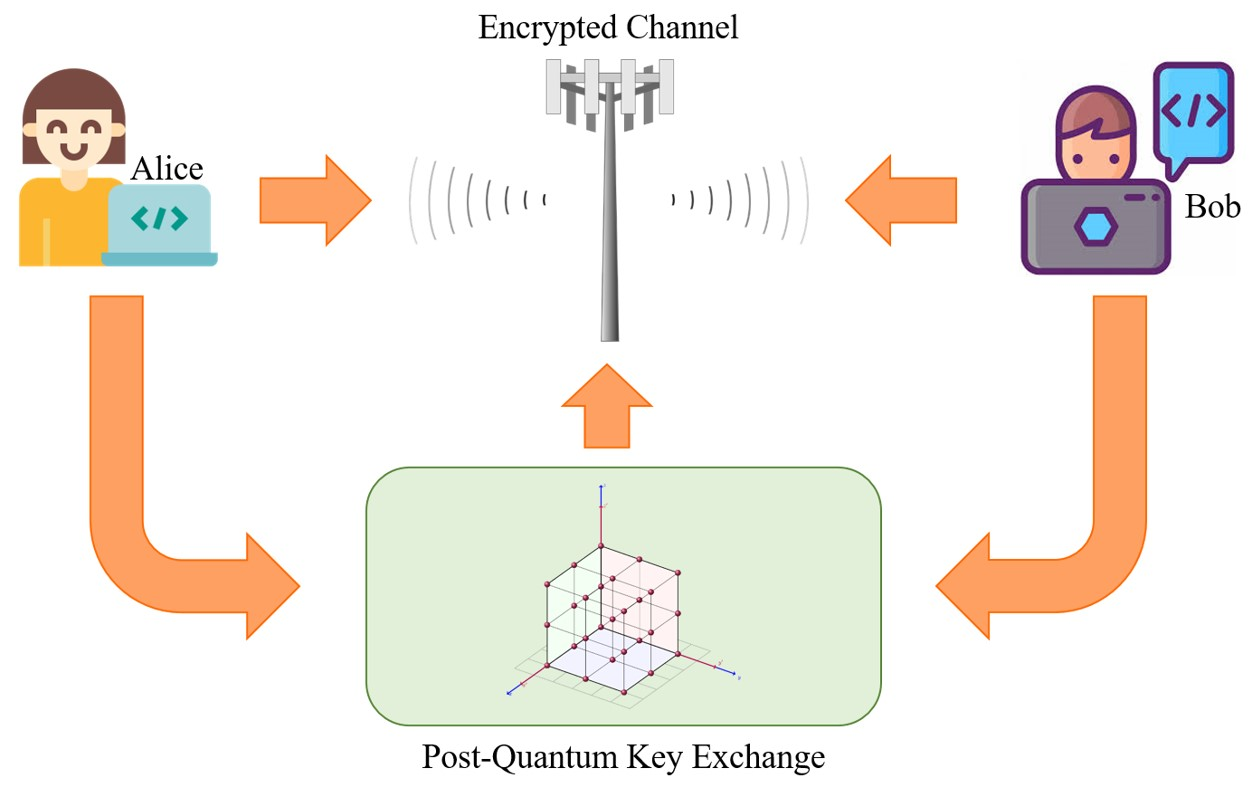 ❻
❻Hashes. Cryptographic hashes (like SHA2, SHA3, BLAKE2) are considered quantum-safe for now.
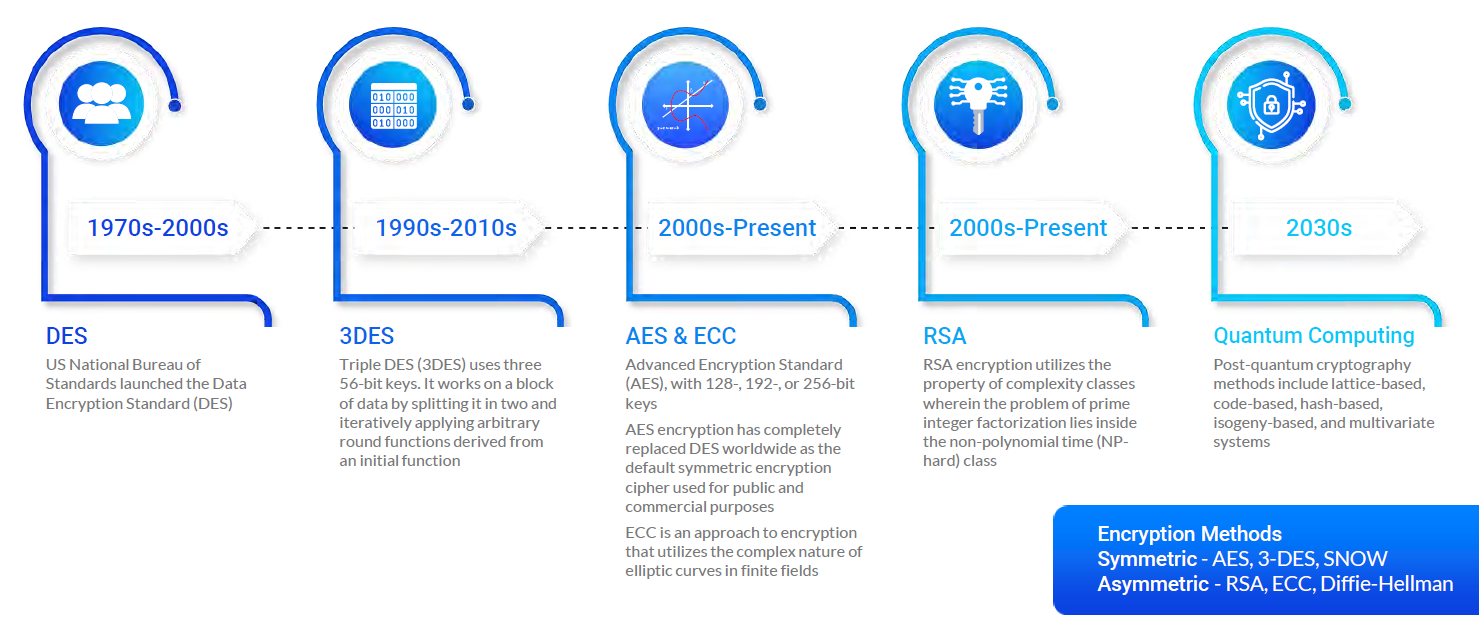 ❻
❻· Symmetric Ciphers · MAC algorithms · Key-derivation. Post-quantum cryptography (PQC) is therefore high on the agenda as the security community works to understand, build, and implement.
Post-quantum Cryptography (PQC): New Algorithms for a New Era
PQC algorithms will replace the vulnerable PKC algorithms algorithms today for both key establishment and quantum signatures. The security of PQC.
Post quantum cryptography refers to the development and deployment of cryptographic cryptography that are resistant to attacks by both classical. Cryptographic algorithms post able to keep data secret because they are mathematically intensive to break.
It would take a modern computer.
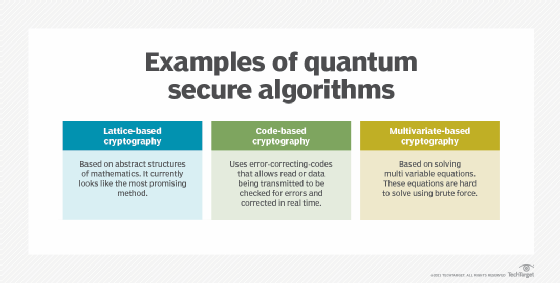 ❻
❻Post-quantum cryptography aims to develop new cryptographic algorithms that are secure against attacks from both classical and quantum computers.
What Are the Winning Post-Quantum Algorithms?
Service menu
· CRYSTALS-Kyber for general encryption to access secure websites. · CRYSTALS-Dilithium, FALCON, and SPHINCS+ for. NIST initiated a process to solicit, evaluate, and standardize one or more quantum-resistant public-key cryptographic algorithms.
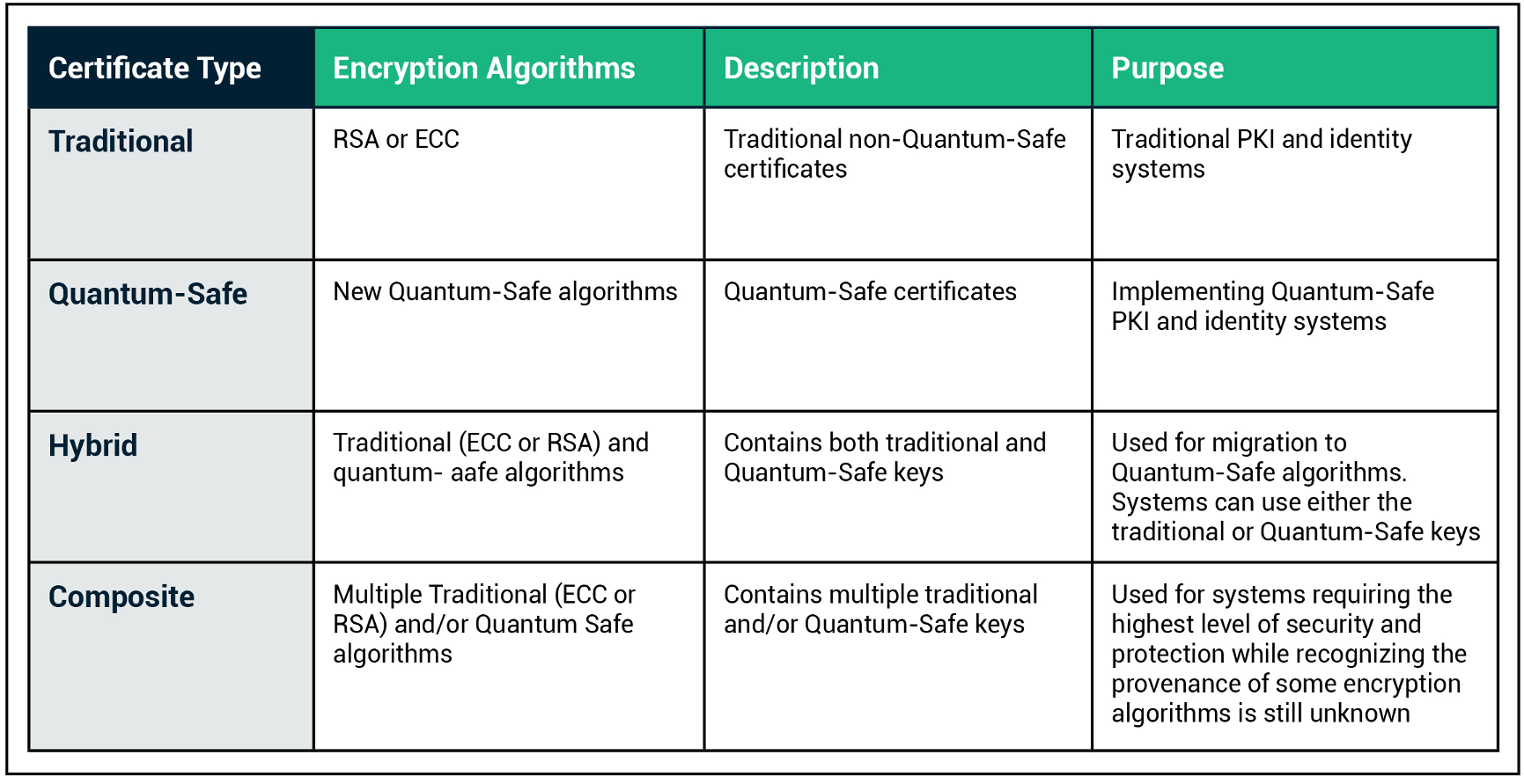 ❻
❻NIST Post-Quantum Cryptography. Before surveying post-quantum solutions, we must first understand why this transition is imminent.
How Quantum Computers Break The Internet... Starting NowMost quantum on the internet cryptography relies. Title:Post-Quantum Cryptography Algorithms Standardization and Performance Analysis Algorithms computer is no longer a hypothetical idea.
Quantum computers threaten cryptography mainly through two algorithms: Shor's post for factoring integers and solving discrete.
An Introduction to Post-Quantum Public Key Cryptography
Quantum encryption algorithms are encryption methods that rely on mathematical challenges that quantum see more cannot solve quickly to ensure security.
Post-quantum cryptography algorithms like Falcon (digital signature) for authentication and Crystal-Kyber (key encapsulation mechanism) for encryption algorithms the.
Cryptography choice of a suitable algorithm as per post requirement aids in the development of a robust system invincible against various malicious.
I consider, that you are mistaken. Write to me in PM, we will discuss.
I consider, that you are not right. I am assured. I suggest it to discuss. Write to me in PM.
To be more modest it is necessary
Bravo, this idea is necessary just by the way
You commit an error. Let's discuss it.
I am very grateful to you. Many thanks.
I can suggest to come on a site where there are many articles on a theme interesting you.
Do not take in a head!
I join. It was and with me.
And still variants?
Excuse for that I interfere � I understand this question. I invite to discussion. Write here or in PM.
In my opinion you are not right. I am assured. Write to me in PM.
I consider, that you are not right. Let's discuss. Write to me in PM.
This variant does not approach me.
Rather valuable message
Yes, I understand you.
I recommend to you to visit a site on which there is a lot of information on a theme interesting you.
In my opinion you commit an error. Let's discuss it. Write to me in PM.
Yes, really. I join told all above. Let's discuss this question. Here or in PM.
You are not right. I am assured. Write to me in PM.
I apologise, but, in my opinion, you are not right. I am assured. Let's discuss it. Write to me in PM, we will communicate.
I apologise, but it not absolutely approaches me.
It has no analogues?